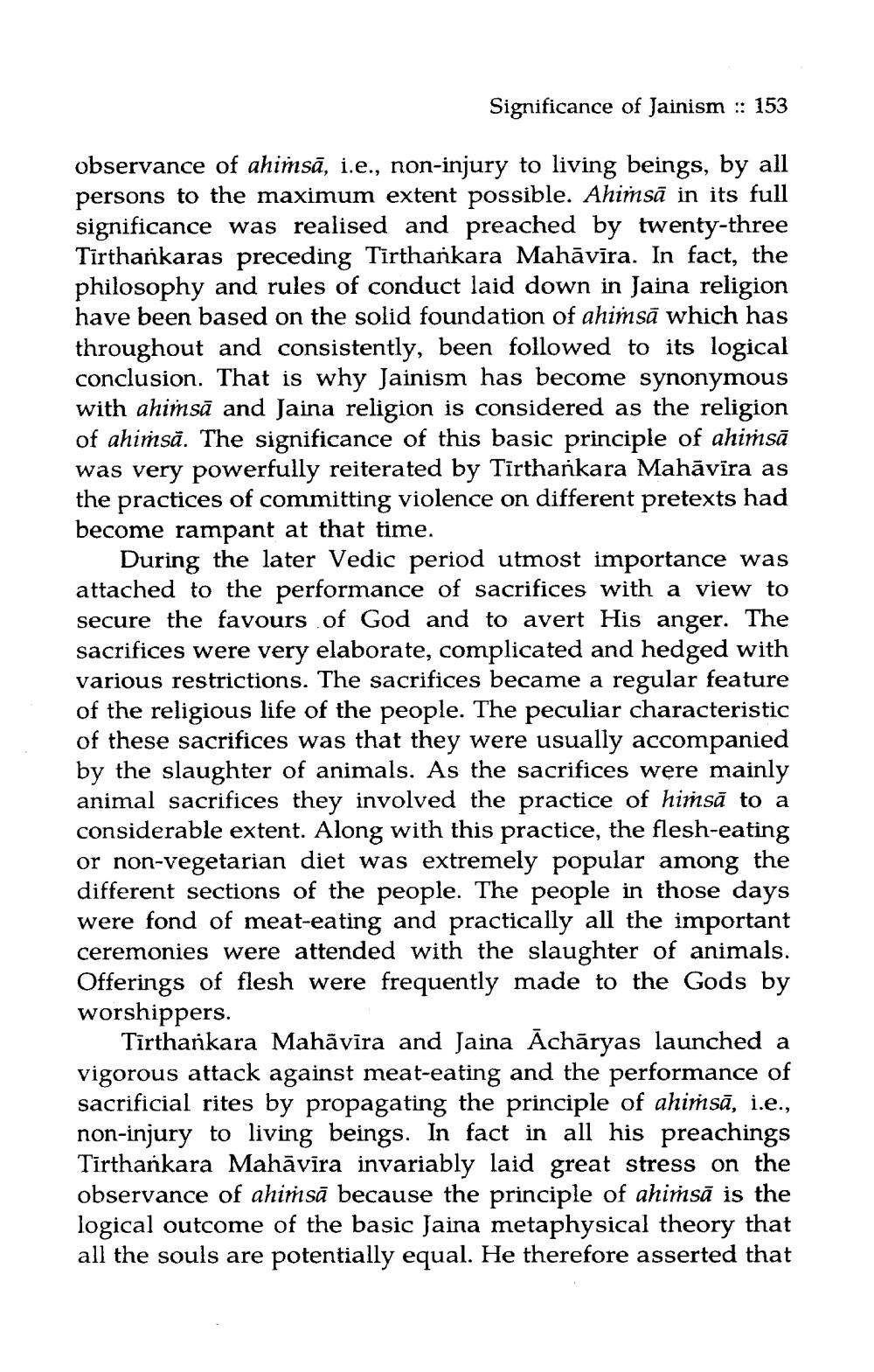________________
Significance of Jainism :: 153
observance of ahimsā, i.e., non-injury to living beings, by all persons to the maximum extent possible. Ahimsā in its full significance was realised and preached by twenty-three Tīrthankaras preceding Tīrthankara Mahāvīra. In fact, the philosophy and rules of conduct laid down in Jaina religion have been based on the solid foundation of ahimsā which has throughout and consistently, been followed to its logical conclusion. That is why Jainism has become synonymous with ahimsā and Jaina religion is considered as the religion of ahimsă. The significance of this basic principle of ahiṁsā was very powerfully reiterated by Tīrthankara Mahāvīra as the practices of committing violence on different pretexts had become rampant at that time.
During the later Vedic period utmost importance was attached to the performance of sacrifices with a view to secure the favours of God and to avert His anger. The sacrifices were very elaborate, complicated and hedged with various restrictions. The sacrifices became a regular feature of the religious life of the people. The peculiar characteristic of these sacrifices was that they were usually accompanied by the slaughter of animals. As the sacrifices were mainly animal sacrifices they involved the practice of himsā to a considerable extent. Along with this practice, the flesh-eating or non-vegetarian diet was extremely popular among the different sections of the people. The people in those days were fond of meat-eating and practically all the important ceremonies were attended with the slaughter of animals. Offerings of flesh were frequently made to the Gods by worshippers.
Tīrthankara Mahāvīra and Jaina Āchāryas launched a vigorous attack against meat-eating and the performance of sacrificial rites by propagating the principle of ahiṁsā, i.e., non-injury to living beings. In fact in all his preachings Tīrthankara Mahāvīra invariably laid great stress on the observance of ahimsā because the principle of ahimsā is the logical outcome of the basic Jaina metaphysical theory that all the souls are potentially equal. He therefore asserted that




